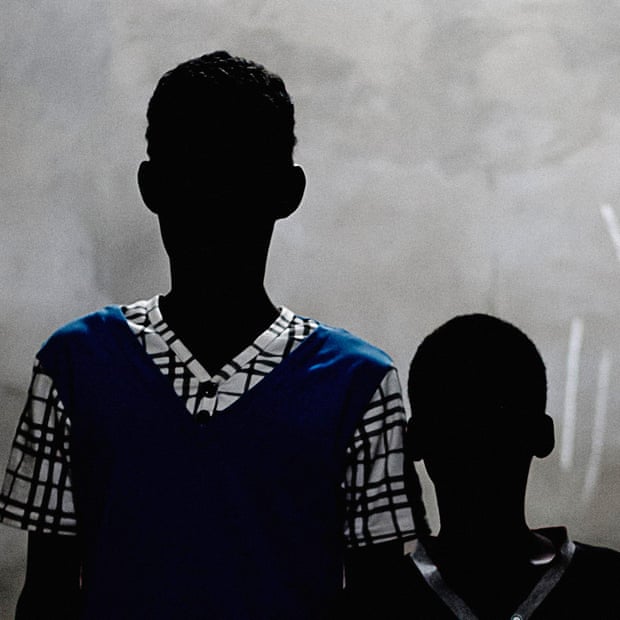The Australian government should introduce a modern slavery act, establish an anti-slavery commissioner, create a compensation scheme for victims and force big corporations to root out exploitation in their supply chains, an inquiry has found.
The inquiry into modern slavery in Australia delivered its final report on Thursday evening, providing a detailed blueprint for the creation of a modern slavery act in Australia.
Action on modern slavery has been spurred by a string of controversies, from the exploitation of migrant fruit pickers, Australian involvement in damaging orphanage tourism and the exploitation of cleaners.
The latest estimates suggest 40 million people around the world and 4,300 people in Australia are victims of modern slavery, including through human trafficking, debt bondage, forced labour and other slavery-like practices.
Crucially, the inquiry’s report, titled “Hidden in Plain Sight”, has called for the creation of an independent anti-slavery commissioner, mirroring a successful model in the UK.
The inquiry also wants to force big corporations with a revenue of $50m or more to prove they are not profiting or gaining a competitive advantage from slavery in their supply chains.
Quick GuideModern slavery
Show

What is modern slavery?
About 150 years after most countries banned slavery – Brazil was the last to abolish its participation in the transatlantic slave trade, in 1888 – millions of men, women and children are still enslaved. Contemporary slavery takes many forms, from women forced into prostitution, to child slavery in agriculture supply chains or whole families working for nothing to pay off generational debts. Slavery thrives on every continent and in almost every country. Forced labour, people trafficking, debt bondage and child marriage are all forms of modern-day slavery that affect the world's most vulnerable people.
How many people are enslaved across the world?
The UN's International Labour Organisation (ILO) estimates that about 21 million people are in forced labour at any point in time. The ILO says this estimate includes trafficking and other forms of modern slavery. They calculate that 90% of the 21 million are exploited by individuals or companies, while 10% are forced to work by the state, rebel military groups, or in prisons under conditions that violate ILO standards. Sexual exploitation accounts for 22% of slaves.
Where does slavery exist?
Slavery exists in one form or another in every country. Asia accounts for more than half of the ILO's 21 million estimate. In terms of percentage of population, central and south-east Europe has the highest prevalence of forced labour, followed by Africa, the Middle East, Asia Pacific, Latin America and the Caribbean.
Who is profiting?
In 2005, the ILO estimated that illegal profits from forced labour amounted to more than $44bn. The UN's global initiative to fight trafficking says people trafficking is the third-largest global criminal industry (pdf) behind drugs and arms trafficking. The ILO estimates that people in forced labour lose at least $21bn each year in unpaid wages and recruitment fees. Slavery also exists within global supply chains, generating huge profits for those who control this industry in free labour.
The recommended threshold is well below the $100m previously proposed by government, and would capture most large entities in Australia, the inquiry said.
It would force companies like Woolworths and Coles, for example, to show slavery is not occurring among its suppliers.
The inquiry also recommended vulnerable migrant workers should be better protected through changes to Australia’s visa system, while a community hotline should be created to report modern slavery and a national labour hire licensing scheme established.
The inquiry also called for measures to stamp out Australian support for orphanage tourism, which exploits fake orphans for profit from tourists, often putting them at significant risk of harm.
Orphanage tourism should be included in the definition of modern slavery and the Australian government has been urged to ensure foreign aid does not go to overseas orphanages.
The inquiry also called for aid funding to be diverted to keeping families together and caring for children through community-based care, rather than institutions.
The recommendations have been praised by leading orphanage tourism expert, Kate Van Doore, of Griffith University, who said it put Australia at the forefront of efforts tackle exploitation.
“These recommendations pave the way for Australia to continue to lead the world in combatting orphanage trafficking,” Van Doore told Guardian Australia. “They represent a huge step for child protection advocates who have worked tirelessly to have orphanage trafficking recognised in law.”
The inquiry also recommended a compensation scheme for victims of modern slavery in Australia should also be created, the inquiry said, which would be funded through proceeds of crime. The government should also give victims the right to sue for modern slavery.
The foreign affairs and aid sub-committee chair, Chris Crewther, described modern slavery as a “heinous” crime that must be stamped out.
“Modern slavery describes some of the greatest crimes of our time,” Crewther said. “The recommendations from this inquiry make a significant contribution to ensuring that, here in Australia, we are doing all we can to eradicate these crimes.”
The inquiry has also recommended further research on modern slavery be conducted by the Australian Institute of Criminology and that defences be introduced to protect victims of modern slavery offences who are compelled to commit a crime.
The government released a plan in August to make large companies file annual reports on modern slavery.
